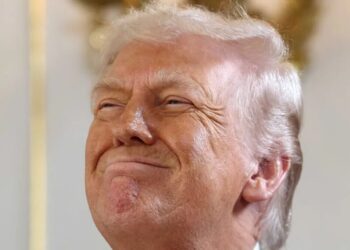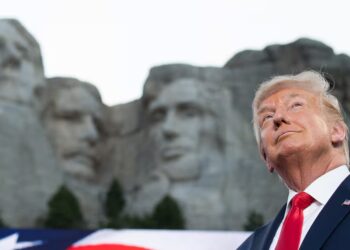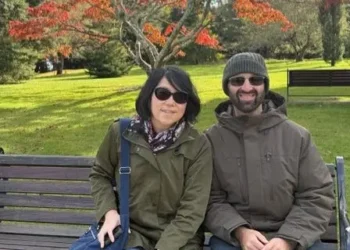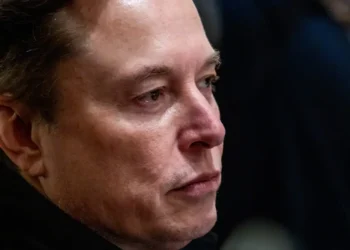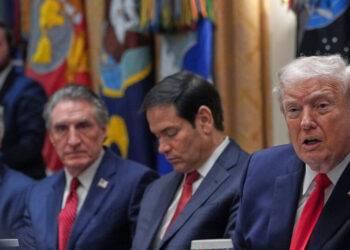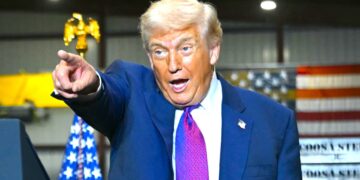This staggering move just made Trump a global supervillain
Last week, President Donald Trump cemented his standing as the greatest environmental criminal among world leaders, a mantle of which...
ICE Barbie Humiliated Over Her Error-Riddled ‘Worst of the Worst’ Site
The Department of Homeland Security had to fix its website showing the “worst of the worst” arrested immigrants after the...
The War Over Prediction Markets Is Just Getting Started
The political fight in the US over the future of prediction markets like Polymarket and Kalshi has escalated into a...
Egomaniac Trump, 79, Gets Another Building Named After Him
Donald Trump is set to have yet another building named after himself, this time just west of his adopted hometown....
A 3-fund portfolio, a no-kid lifestyle, and a ‘die with zero’ mindset: How one NYC couple is retiring in their 40s
Financially independent couple Josette Chang and Alexander Nathanson Courtesy of Josette Chang and Alexander NathansonJosette Chang and Alexander Nathanson paid...
Leading US Research Lab Appears to Be Squeezing Out Foreign Scientists
One of the US government’s top scientific research labs is taking steps that could drive away foreign scientists, a shift...
DOJ officials face reality in election fraud cases as Trump demands more
The Justice Department has struggled to meet White House demands to prosecute noncitizen voters as conspiracy theories that President Donald...
The rare astrological event that toppled the Berlin Wall is back to wreck 2026 — brace for cosmic chaos
History’s in the making — and brimstone’s on the horizon. On Friday, February 20, Saturn, our planet of karma, responsibility, reality,...
Mixed Signals Churn Stock Market Despite Recent Highs
There were traders wearing “Dow 50,000” caps, and bright chyrons on CNBC. Attorney General Pam Bondi told lawmakers in Congress...
War rooms, group chats, and video games: Inside Elon Musk’s AI startup
Bloomberg/Getty ImagesXAI merged with SpaceX and lost two cofounders — all in the same month.Current and former employees say Elon...
